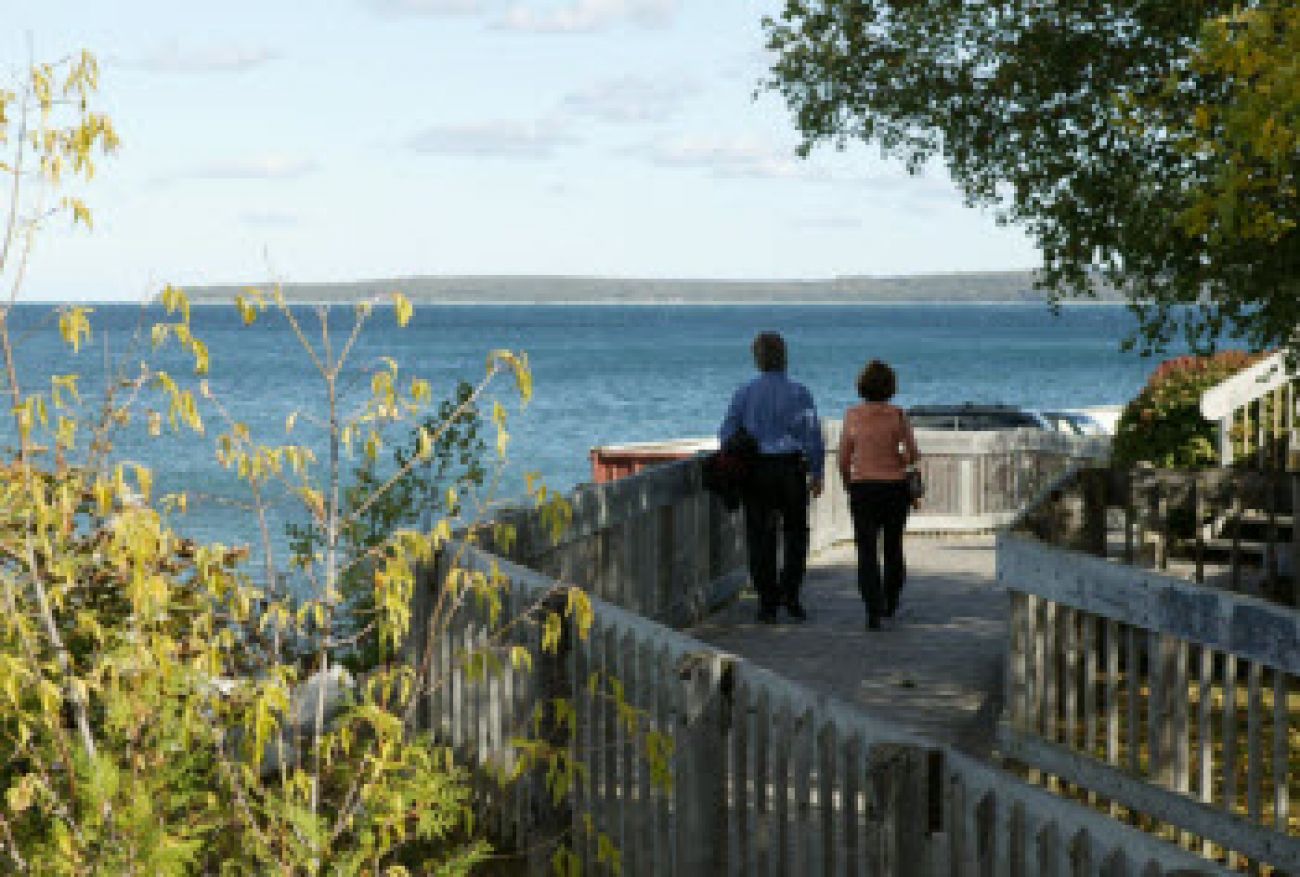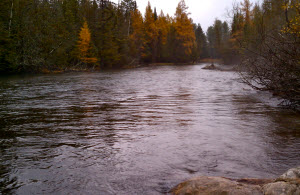Trust Fund's dollars have earned friends across Michigan

ST. IGNACE — It wasn’t long ago that Chief Wawatam Park in downtown St. Ignace was an industrial wasteland, a relic of an era when ferries carried rail cars across the Straits of Mackinac.
The park, named after an Ojibwa chief who visited the area in the 1700s, was ... unsightly.
Today, the refurbished site features a mile-long boardwalk that extends from the city’s shopping district to the steel blue waters of Lake Huron, fishing platforms and a splash pad. It has become a magnet for local residents and tourists alike, say city officials.
And credit goes to the Michigan Natural Resources Trust Fund, one leader says, for transforming the park and pumping new economic life into downtown St. Ignace.
"I can’t say enough about the Trust Fund," said Debra Evashevski, executive director of the St. Ignace Downtown Development Authority. "The impact the Trust Fund has had in our community, in preserving our Lake Huron waterfront, is almost immeasurable … It’s helped our city immensely."
The Trust Fund has earned widespread praise for preserving some of Michigan’s most spectacular natural areas — the tip of the Keweenaw Peninsula, miles of waterfront property along the upper Manistee and Au Sable rivers and large swaths of forestland in the U.P. — and for ensuring public access to lakes, rivers and forests.
But local and state officials said the Trust Fund’s support of community recreation projects has been just as significant as the fund preserving a sand dune or buying waterfront property to protect a trout stream.
"It’s been an incredible success," said Steve DeBrabander, who manages the Trust Fund for the Michigan Department of Natural Resources. "You literally can go in any county in the state and find public outdoor recreation facilities that have been developed, or land that has been acquired, by the Trust Fund."
The Trust Fund has awarded 1,957 grants totaling $959 million during its 36-year history: $757 million went to buying land; the remaining $202 million was used to develop outdoor recreation facilities.
The DNR has received 61 percent of all land acquisition grants and purchased 165,221 acres with that money, according to a House Fiscal Agency study. Local units of government and nonprofit organizations received the rest of the land acquisition grants.
Local communities received 82 percent of all development grants from the Trust Fund; the state received the remainder, according to the House Fiscal Agency study. Development grants pay for building such things as trails, boat launches, marinas and ball fields.
The fund has supported projects in all 83 Michigan counties. The Trust Fund’s biggest hits include:
* Public lands along the Manistee and Au Sable rivers. The Trust Fund acquired 70 miles of waterfront property and 25,000 acres of land along the rivers.
* Public beaches and bike paths along Grand Traverse Bay, where the Trust Fund provided millions of dollars in grant to help create public beaches and recreational paths that have become popular among local residents and visitors.
* The Northern Great Lakes Forest Project in the Upper Peninsula. The Trust Fund contributed $16 million toward the purchase of a conservation easement on 248,000 acres of forestland that spans much of the U.P. The conservation easement, which prevented the property from being sold, ensured public access to all of the land in perpetuity.
* The Detroit Riverwalk and William Milliken State Park, where $34 million in Trust Fund grants helped transform an industrial waterfront into a recreational gem that increased public access to the Detroit River.
In urban areas like Jackson, the Trust Fund is connecting people with nature and changing individual behavior, said Brandon Ransom, Jackson County’s parks director.
Jackson County received $500,000 in Trust Fund grants to renovate an abandoned fishing pond and build the 10.5-mile long Falling Waters Trail. Ransom said the trail has spurred economic activity and outdoor exercise in the community; the trail is used about 70,000 times annually.
"Six years ago you didn’t see many bike racks on vehicles in town — now it’s a common occurrence," Ransom said. "And it’s pretty cool to see kids at the pond with fishing poles."
Jeff Alexander is owner of J. Alexander Communications LLC and the author of "Pandora's Locks: The Opening of the Great Lakes - St. Lawrence Seaway." He’s a former staff writer for the Muskegon Chronicle.
See what new members are saying about why they donated to Bridge Michigan:
- “In order for this information to be accurate and unbiased it must be underwritten by its readers, not by special interests.” - Larry S.
- “Not many other media sources report on the topics Bridge does.” - Susan B.
- “Your journalism is outstanding and rare these days.” - Mark S.
If you want to ensure the future of nonpartisan, nonprofit Michigan journalism, please become a member today. You, too, will be asked why you donated and maybe we'll feature your quote next time!


